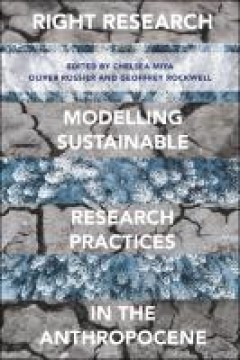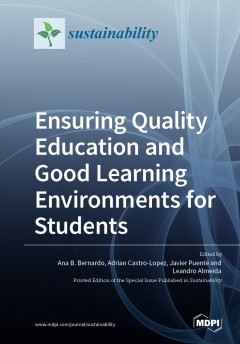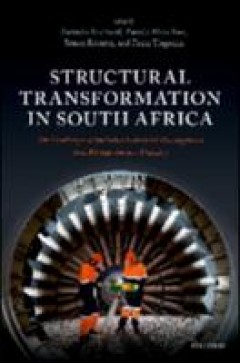Filter by

Right research : modelling sustainable research practices in the anthropocene
Educational institutions play an instrumental role in social and political change, and are responsible for the environmental and social ethics of their institutional practices. The essays in this volume critically examine scholarly research practices in the age of the Anthropocene, and ask what accountability educators and researchers have in ‘righting’ their relationship to the environment…
- Edition
- -
- ISBN/ISSN
- 9781783749638
- Collation
- xxiii, 560 p. ; ill
- Series Title
- -
- Call Number
- 304.2 MIY r

Engines of Order : A Mechanology of Algorithmic Techniques
Over the last decades, and in particular since the widespread adoption of the Internet, encounters with algorithmic procedures for ‘information retrieval’ – the activity of getting some piece of information out of a col-lection or repository of some kind – have become everyday experiences for most people in large parts of the world.
- Edition
- -
- ISBN/ISSN
- 9789048537419
- Collation
- 353 p.: ill.
- Series Title
- -
- Call Number
- 518.1 RIE e

Information and knowledge organisation in digital humanities: global perspect…
Information and Knowledge Organisation explores the role of knowledge organisation in the digital humanities. By focusing on how information is described, represented and organised in both research and practice, this work furthers the transdisciplinary nature of digital humanities. Including contributions from Asia, Australia, Europe, North America and the Middle East, the volume explores the p…
- Edition
- -
- ISBN/ISSN
- 9781003131816
- Collation
- xxiii, 290 p. : ill.
- Series Title
- Digital Research in the Arts and Humanities
- Call Number
- 658.038 GOL i

Ensuring quality education and good learning environments for students
Today, new technologies bring with them an everchanging panorama, forcing us to constantly update our knowledge. For this reason, quality education is necessary in all areas of knowledge and at all educational levels. The quality of our educational systems and the questions raised by reviewing whether our educational institutions offer quality education or not are some of the main reasons why q…
- Edition
- -
- ISBN/ISSN
- 9783036524450
- Collation
- x, 254 p. : ill.
- Series Title
- -
- Call Number
- 370 BER e

Structural transformation in South Africa : the challenges of inclusive indus…
Taking South Africa as an important case study of the challenges of structural transformation, the book offers a new micro-meso level framework and evidence linking country-specific and global dynamics of change, with a focus on the current challenges and opportunities faced by middle-income countries. Detailed analyses of industry groupings and interests in South Africa reveal the complex set …
- Edition
- -
- ISBN/ISSN
- 9780192894311
- Collation
- xxvii, 382 p.; ill
- Series Title
- -
- Call Number
- 338.968 STR s
Urban transformations and public health in the emergent city
Urban transformations and public health in the emergent city examines how urban health and wellbeing are shaped by migration, mobility, racism, sanitation and gender. Adopting a global focus, spanning Africa, Asia, Europe and Latin America, the essays in this volume bring together a wide selection of voices that explore the interface between social, medical and natural sciences. This interdisci…
- Edition
- -
- ISBN/ISSN
- 9781526150943
- Collation
- xiii, 233 p
- Series Title
- -
- Call Number
- -

The evolutionary dynamics of discursive knowledge : communication-theoretical…
This open access book have three themes have been central to Leydesdorff's research: (1) the dynamics of science, technology, and innovation; (2) the scientometric operationalization of these concept; and (3) the elaboration in terms of a Triple Helix of university-industry-government relations. In this study, I discuss the relations among these themes. Using Luhmann's social-systems theory for…
- Edition
- -
- ISBN/ISSN
- 9783030599515
- Collation
- x, 247p. : ill.
- Series Title
- -
- Call Number
- 301.072 LEY e

Harnessing knowledge, innovation and competence in engineering of mission cri…
This book explores the critical role of acquisition, application, enhancement, and management of knowledge and human competence in the context of the largely digital and data/information dominated modern world. Whilst humanity owes much of its achievements to the distinct capability to learn from observation, analyse data, gain insights, and perceive beyond original realities, the systematic tr…
- Edition
- -
- ISBN/ISSN
- 9781789844672
- Collation
- XIII, 177 p.
- Series Title
- -
- Call Number
- 658.4038 HAR h

Data science for economics and finance : methodologies and applications
This open access book covers the use of data science, including advanced machine learning, big data analytics, Semantic Web technologies, natural language processing, social media analysis, time series analysis, among others, for applications in economics and finance. In addition, it shows some successful applications of advanced data science solutions used to extract new knowledge from data in…
- Edition
- -
- ISBN/ISSN
- 9783030668914
- Collation
- xiv, 355p. : ill.
- Series Title
- -
- Call Number
- 006.312 DAT d

Data collection in fragile states : innovations from Africa and Beyond
Fragile countries face a triple data challenge. Up-to-date information is needed to deal with rapidly changing circumstances and to design adequate responses. Yet, fragile countries are among the most data deprived, while collecting new information in such circumstances is very challenging. This open access book presents innovations in data collection developed with decision makers in fragile c…
- Edition
- -
- ISBN/ISSN
- 9783030251208
- Collation
- xxxi, 243p. : ill.
- Series Title
- -
- Call Number
- 338.90072 DAT d
 Computer Science, Information & General Works
Computer Science, Information & General Works  Philosophy & Psychology
Philosophy & Psychology  Religion
Religion  Social Sciences
Social Sciences  Language
Language  Pure Science
Pure Science  Applied Sciences
Applied Sciences  Art & Recreation
Art & Recreation  Literature
Literature  History & Geography
History & Geography